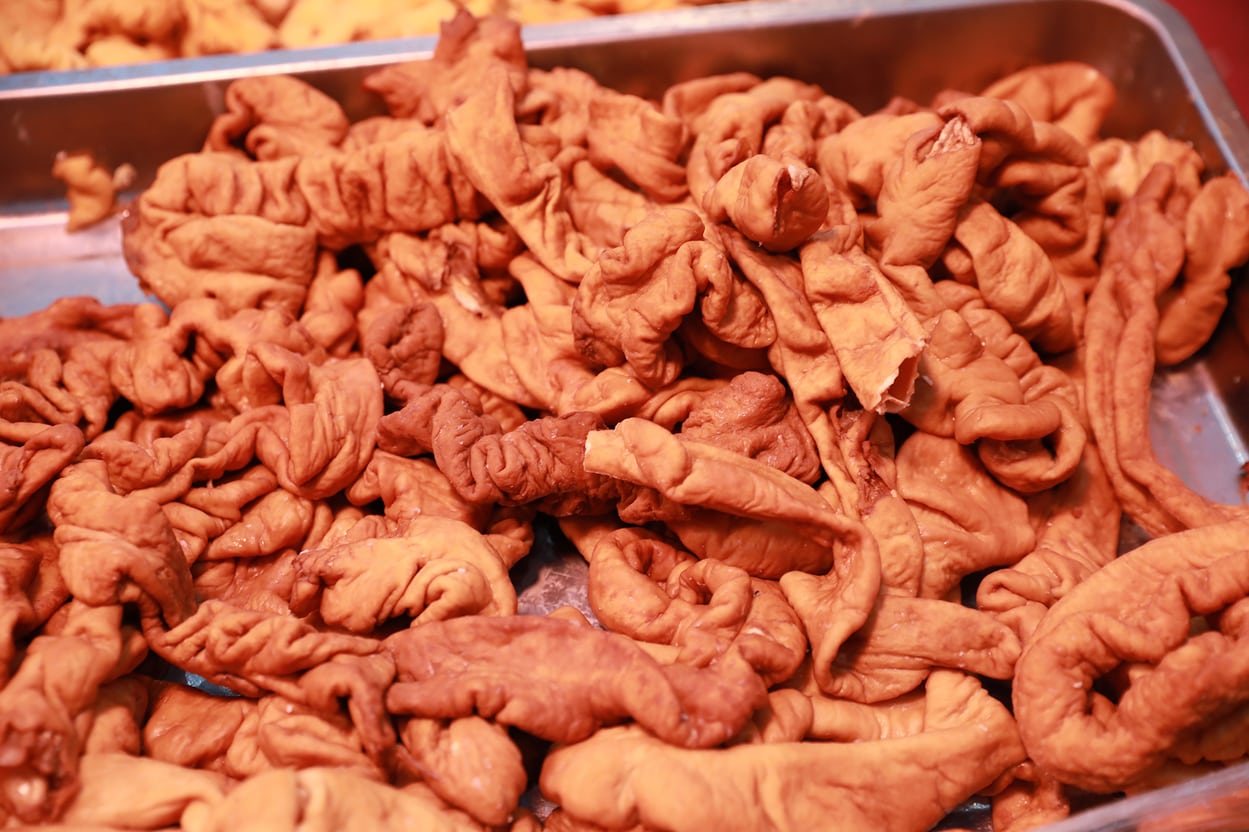Pig Guts Literally Flew As Taiwan Politicians Brawled Over American Pork

The phrase “when pigs fly” took a whole new meaning in the Taiwanese government, where opposition legislators literally tossed pig guts in the Parliament building during a speech.
According to the Washington Post, the entire fiasco was launched by the Kuomintang, or Chinese Nationalist Party, who brought organs, intestines, and innards into the chamber to toss on the floor in a massive protest. Also on the floor was an American flag and a sign reading “INEDIBLE” in English.
This all came after the ruling Democratic Progressive Party in Taiwan decided to allow U.S. imports of pork containing the controversial additive ractopamine. Although the ruling for such was passed in September, an annual policy address in late November describing the inclusion led to the fracas.
To understand why legislators were making such a big deal over pork, one should know that food policy and health is one of the biggest issues in Taiwan. Such brawls and protests were also more common in the early days of Taiwan’s parliament, and while they can be violent, they are more of an act of showmanship or toughness.
These days, those fights are usually reserved for hot-button issues, of which ractopamine and food policy is definitely one of in Taiwan.

Ractopamine is particularly controversial because while China and the EU ban its use in pork and animal feed, it is still allowed by the United States Food & Drug Administration (FDA) for use stateside. The chemical, similar to adrenaline or epinephrine, can be used as a stimulant for weight gain and increases lean muscle mass. In the industry, it’s meant to get pigs to gain weight faster close to slaughter without a need for using as many natural resources.
Controversy around ractopamine stems from potential adverse health effects it can have on humans. The FDA does not allow potentially harmful amounts of ractopamine to be left in pork, but the compound itself is not very well studied in humans. One of the few studies out there conducted had a participant drop out due to a “rapid heart rate,” but the consensus is that if used properly, usage in the livestock industry should not be toxic to humans.

As a food scientist and writer looking at the future of food, it is important to understand that the world has to find ways to make food with a decreasing and limited supply of natural resources. Ractopamine has been a way to do that for USA factory farms, but a more effective long-term solution would come from more sustainable farming practices and changing dietary mindsets to include protein from alternate sources. That way, we don’t have to force a compound with potential for adverse short-term effects into our diets.
The United States has been trying to get China to allow imports of ractopamine-fed pork in the past, but has so far been unsuccessful. China is currently conducting a review on their ban on ractopamine, however.
Getting approval in Taiwan may be inroads to a future pathway to get that to happen, but the furor and controversy stirred in Taiwan’s government may prove to be a deterrent.






















